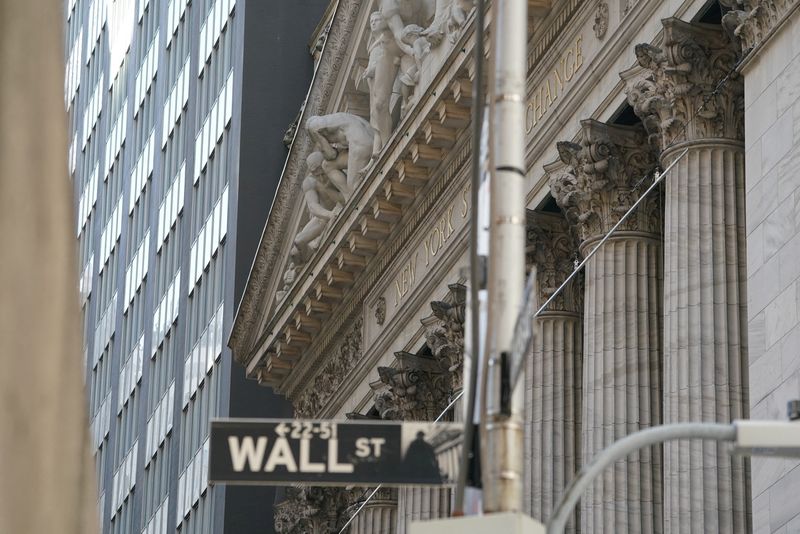A look at the day ahead in U.S. and global markets from Mike Dolan
Roaring Japanese stocks at 21st century highs shone in an otherwise subdued day for world markets, with Wall St bracing for Thursday's critical inflation update and bitcoin swinging wildly on statements from a seemingly hacked SEC account.
With most of the rest of Asia's stock markets under a cloud, and China's relentless declines continuing ahead of the weekend elections in Taiwan and amid property sector woes, the Nikkei 225's latest surge to 34-year highs was an eye-catching outlier.
Historically cheap Japanese stocks have been the 'best of the rest' behind Wall St's major indexes over the past year, gaining almost 20% over 12 months as the Bank of Japan resisted the G7 central bank rush to tighten interest rates, and the yen weakened sharply.
A gradual rowback on its super-easy money policy ensued, and the standing assumption for this year was that the BOJ would end its negative rate policy.
But the latest soft inflation and wage numbers from Japan suggest there's no need to rush. The yen has fallen back once again, and the stock market enlivened.
Wednesday's latest data showed Japanese workers' real wages kept shrinking for a 20th month in November, falling some 3% over the year as total cash earnings grew only 0.2%.
Earlier in the week Tokyo's consumer inflation, a leading indicator of nationwide price trends, showed a further slowdown.
The other excitement overnight was bitcoin's latest wild ride after the 'X' account of the U.S. Securities and Exchange Commission was hacked with a false message saying it had approved exchange-traded funds (ETFs) for cryptocurrency.
An ETF decision has long been awaited by the crypto industry and was expected to come this week, lifting bitcoin prices in advance. After eventually removing the erroneous social media posting, the SEC said it had not yet approved spot bitcoin ETFs.
Bitcoin slid 1.3% to $45,516 after surging to a 21-month peak of $47,897 on the fake post.
With the December U.S. consumer price report due on Thursday and fourth-quarter U.S. bank reports kicking off the earnings season on Friday, markets elsewhere were less frenetic.
The first of the week's big Treasury auctions seemed to go smoothly late on Tuesday, with $52 billion of 3-year notes sold without a glitch and some $37 billion of 10-year notes up for grabs later on Wednesday.
Ten-year yields slipped back below 4% in advance of both the auction and the CPI release tomorrow. The dollar was higher against the yen but softer against the other majors.
S&P500 futures were marginally higher ahead of the bell, after a 0.14% retreat on Tuesday.
Boeing (NYSE:BA) CEO Dave Calhoun acknowledged errors by the U.S. planemaker as more than 170 jets remained grounded for a fourth day after a mid-air Alaska Airlines panel blowout last week, telling staff the company would ensure such an accident "can never happen again".
After an 8% drop on Monday, Boeing stock continued to fall a further 1% on Tuesday and was in the red again in Frankfurt early on Wednesday.
With election anxiety dominating the island, Taiwan's mega chipmaker TSMC reported largely flat fourth-quarter revenue on Wednesday, but that still beat both the company's and market's expectations.
Key diary items that may provide direction to U.S. markets later on Wednesday:
* New York Federal Reserve President John Williams speaks
* Bank of England Governor Andrew Bailey and members of the BoE's Financial Policy Committee answer questions in parliament on the half-yearly Financial Stability Report

* U.S. Treasury auctions $37 billion of 10-year notes
* U.S. Secretary of State Antony Blinken visits West Bank to meet Palestinian President Mahmoud Abbas
(By Mike Dolan; Editing by Jan Harvey; mike.dolan@thomsonreuters.com)